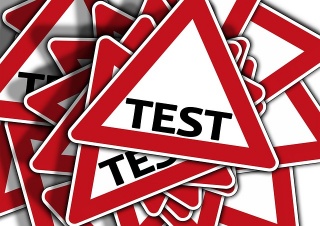The questions which follow provide a basic knowledge test of selected concepts covered in this learning pathway:
Legal forms of business.
The questions published at the end of each learning pathway are re-used for the knowledge test for learners interested in earning a digital badge or certificate of participation for the Introduction to entrepreneurship (IENT102) micro-course. Please consult the Certify participation page for more information.
Indicate whether the following statements are true or false:
- Legal obligations are the same regardless of which form of business entity you choose.
- True
- Wrong. The form of business entity will influence legal obligations.
- False
- Changing from one legal form of business to another is a simple process.
- True
- No, changing the legal form after starting your business can be a complex process.
- False
- There are advantages and disadvantages to all of the legal forms of business ownership.
- True
- False
- Wrong, the forms of business ownership differ when comparing advantages and disadvantages.
- There are multiple factors to consider when deciding on which legal form of business is best for you.
- True
- False
- Incorrect. The entrepreneur must compare multiple factors when selecting the legal form of a business.
Multiple choice questions
- In the context of this micro-course, the term ‘sole proprietorship’ refers to:
- One business owned and run by multiple people
- One business owned and run by one person
- One parent company overseeing several subsidiaries
- One business owned by many shareholders
- In the context of this micro-course, which ONE of the following statements about a business partnership is FALSE:
- A partnership is a business that is directly owned by two or more people
- This is true, based on the definition we have used in this micro-course.
- Business partners are jointly liable for the debt of any partnership they own
- This is true, and is one of the disadvantages of choosing the Partnership model.
- There is no limit to the number of people that can be involved in a partnership
- This is false. In this course, we learn that a partnership typically should not include more than 20 people, depending on your country's jurisdiction.
- A partnership agreement should include various details, including the partners’ salaries and the division of profits
- This is true. A partnership agreement is a legal document, and should ideally be drawn up by an attorney.
- In the context of this micro-course, a ‘Corporation’ or ‘Company’ is:
- An independent legal entity, owned by shareholders
- A business entity which must close or terminate business if any of the owners die or decide to leave
- No, a corporation or company can continue to exist even if there is a change in shareholding.
- The simplest kind of business model to establish
- No, setting up a corporation or company involves more paperwork and more costs than setting up other legal forms of business.
- A form of business with no specific structure
- This is not correct. There are several requirements around the structure and management of a corporation or company.
- Indicate which one of the following is the LEAST important factor to consider when deciding on a business ownership model:
- Ability of the business to exist independently of its owners
- This is one of the factors you need to consider when choosing a business ownership model.
- The start-up capital requirements
- This is one of the factors you do need to consider. The form of business ownership influences the sources of capital for a start-up.
- The name of the business
- That’s right - this is not necessarily something you need to think through when choosing a business ownership model, with the exception of cases where your business name is the same or similar to a registered trademark or registered business.
- The management succession plan
- This is one of the factors you need to consider when choosing a business ownership model.
